Desperate Futurism: Japan. Part 3. “Samurai Spirit”
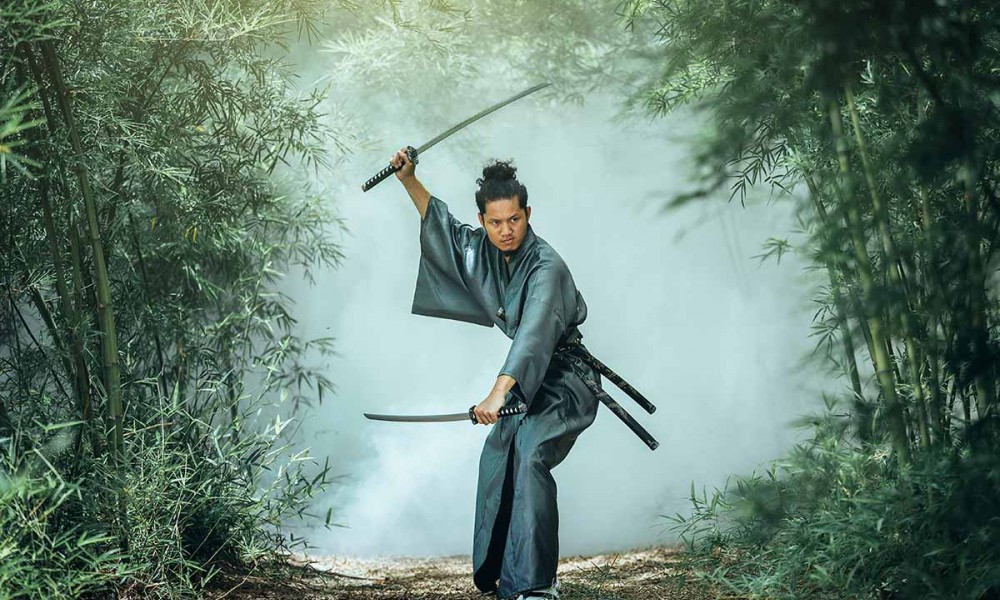
The last samurai from Nabesima clan appeared in front of me. It was a tiny gray-haired man in a chequered shirt, cowboy tie and jeans a little too big for him. His eyes were smiling from underneath a thick rim and his lovely wife was holding his hand. Kenshi Nabeshima came to Tokyo from America. He told us he had lived in the United States for many years. He launched a sports school there where he taught elements of acupuncture, healthy nutrition and basics of sword play.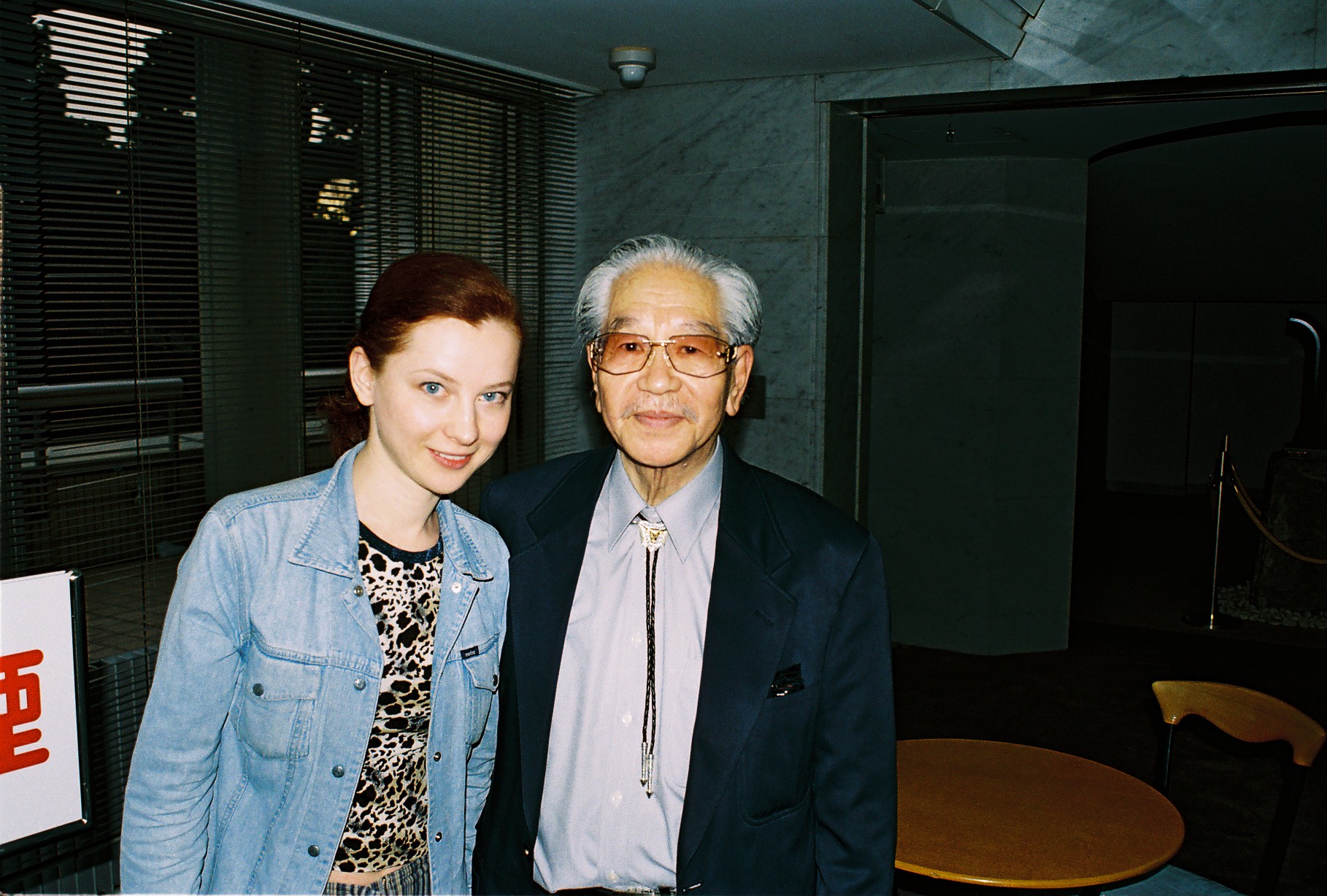 Photo from Elena Rasenko's archive
Photo from Elena Rasenko's archive
He came back to his motherland to revive samurai spirit in Japanese people and also, in order to teach them how to have proper meal and medical treatment. For instance, to take ginger in case of flue, mumps and fever. And to drink aloe juice for measles, smallpox and eczema. When talking about detriment of chemicals he managed to fall of a chair several times. But that wasn’t due to weakness of samurai spirit – it’s just the chair he had sat on was obviously rocky.
In order to fully cover the issue of the national spirit, Takagi-san invited me and my friend to have a glass of sake in an establishment where kamikaze still gather. The place where he took us was located in Shinjuku ward. Traditionally, foreigners prefer coming here and it is there where the majority of Tokyo skyscrapers tower. Izakaya itself (this is a kind of self-service buffets) looked traditionally ancient. It is probably like sake-bars of 1930s – 1940s. Close space, simple wooden benches, tabletops that are made of nearly untreated boards, polished only with elbows of customers, and squeaking floor. The walls were lined with black-and-white photos of men in military uniforms, two small lamps were illuminating the premises, a march was silently sounding.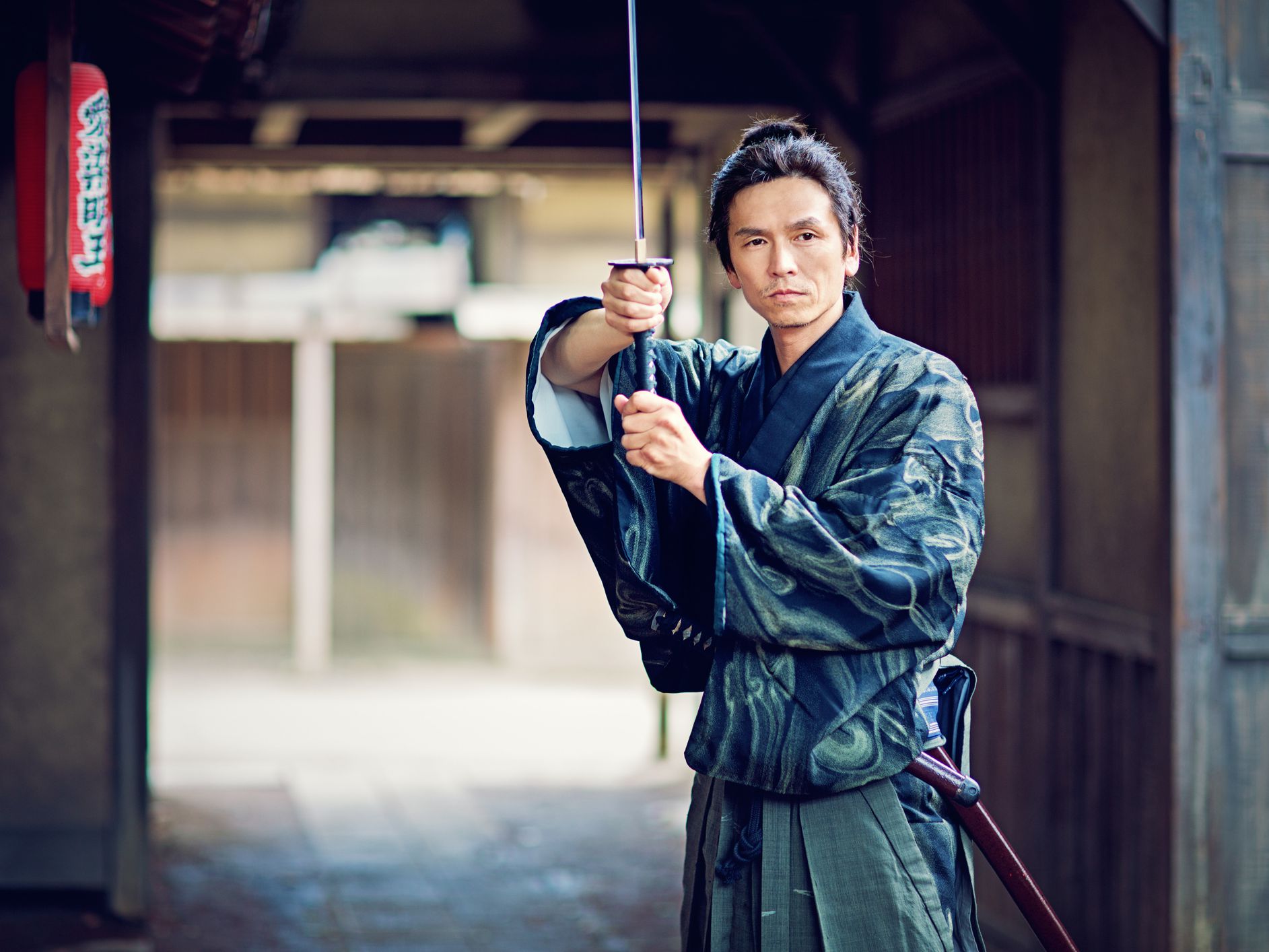
Photo thoughtco.com
Several elderly men were drinking in the bar. They glanced at us, gaijins (foreigners, that is), disapprovingly and started exchanging words. The mistress of the tavern, a tiny woman, asked Takagi-san what we were doing there and if we were Americans. In order to appease her, he let her have a look at our documents. Then he ordered a couple of sakes for us. They were warm and therefore impossible. Having melted a bit, the owner told us that gaijins (foreigners) weren’t too welcome in her bar because they perversely interpret Japanese word ‘kamikaze’. She was convinced that they were patriots and used to protect Japan from aggressors some seven centuries ago.
And nowadays global media started calling ordinary terrorists that. She also told that that particular izakaya used to belong to her mother. Back in 1940 it was her who was seeing suicide-pilots off and pouring them sake for the road. They used to come to grab a drink or two knowing they might never come back to the ground. Their photos hang by tables today. And those, who managed not to set off for their last flight, often come here to have a drink, recall their friends and grumble about modern generation of Japanese. Number of regular customers decrease each year. “They just die”, - the mistress was sighing. Most likely she will have to sell the bar soon, put old photos into boxes and spend the rest of her life somewhere at the seaside. While we were talking to the Japanese woman, a little old man came in, trim with a neat haircut. He gave me and Sasha a dissatisfied look and joined the two men who were keeping a close eye on us the entire time. The mistress bent over to Takagi-san and said that we should have gone. We left the bar at about 8 p.m. I didn’t take it as an offense that we were almost shown the door and that we failed to talk to a kamikaze. It is their country after all and it is up to them to decide whether to talk to gaijins or not. Outside cars were blaring, neon signs were glowing, a machine on the corner selling knickers and lipsticks was winking, two lanky Japanese dressed as Count Drakula were coming from the opposite direction; I felt like looking back to check if the izakaya with its owner and customers was just a dream. But I didn’t.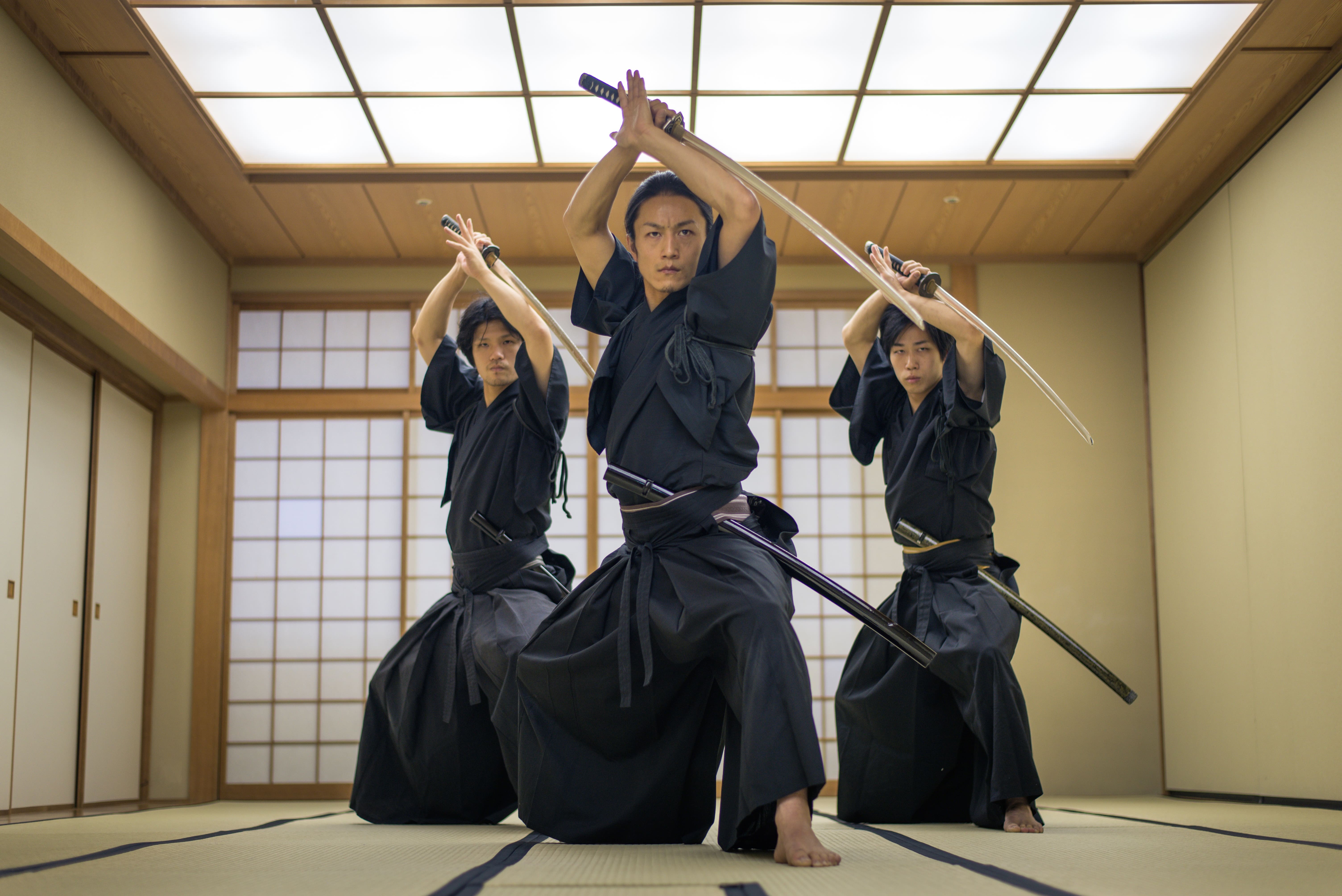 Photo fun-japan.jp
Photo fun-japan.jp
Takagi-san was implacable. That night he felt like getting drunk and determined to make us drunk, too. Having cheered up considerably yet having preserved the ability to move unaided, the Japanese dragged us along to get even tipsier. His favorite establishment was situated nearby. In a fairly large basement several groups of people were partying already. Men in suits and ties were discussing something loudly, throwing their heads far back. A tiny and skinny woman about 60 years old was standing at the counter. She smiled on noticing Takagi-san and reached for a partly empty bottle of whisky of one liter capacity with a bright yellow label.
Read also: Series of articles "Desperate Futurism"
On a closer look I noticed numerous such ‘half-empties’ with post-its on them. Takagi-san explained that Japanese are incapable of drinking as much as Europeans or Russians so they just can’t finish the whole volume at a time. It isn’t a done thing to take drinks out so the only option is to leave the order at a bar to come back and finish it next time. In order not to mix up where is whose whisky, it gets labeled. When I asked if it was possible to come, call yourself somebody else’s name and drink somebody else’s alcohol, I received a not too friendly look, including a one from Takagi-san. He explained that it doesn’t befit a samurai to act like this; again, it contradicts samurai spirit. At this point noisy Japanese, who had already finished one bottle, joined our conversation. It turned out that the guys stepped by the bar after work. And they do it on a regular basis – get drunk with colleagues. Wives and kids expect many of them at home but turning back on a collective boozing meant sabotage and that isn’t appreciated in Japanese companies. Takagi-san was agreeing with our new acquaintances and was already fully relaxed when his wife called. He assured her that he was fine and was going to be home soon. The clock tinkled out midnight. Our new acquaintances burst into singing ‘Kalinka-Malinka’, we managed to tell by the melody, then somebody tried to feature Luciano Povarotti and even asked me for a dance. I eluded that one but had to let them all take pictures with me.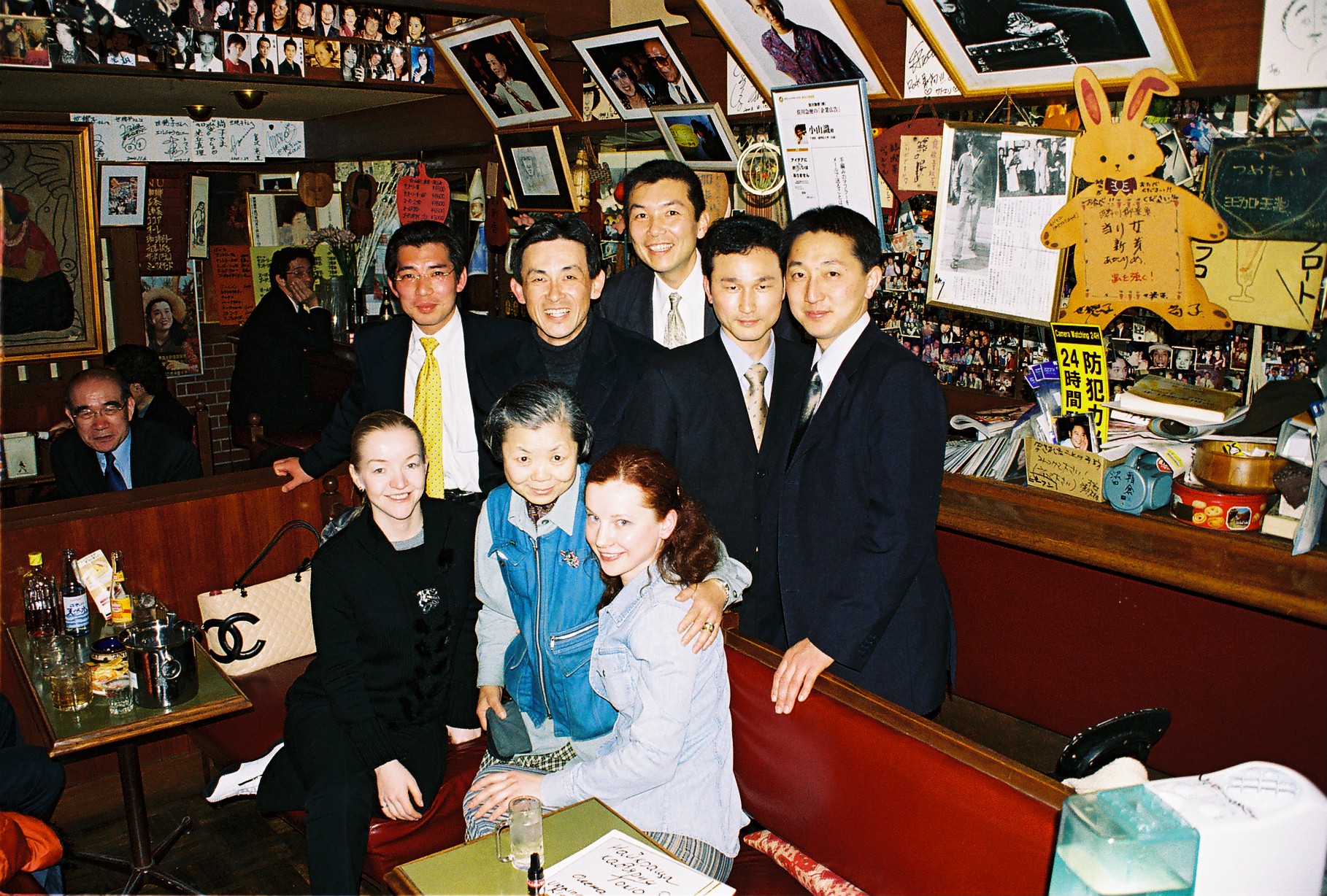 Photo from Elena Rasenko's archive
Photo from Elena Rasenko's archive
Not far from an entrance to a subway middle-aged Japanese was laying on a bench. Hewaswell-dressed, wearingniceshoes. The man was sleeping with his briefcase under his head. He reeked of whisky from as far as several meters away. Takagi-san approached the drunken Japanese, adjusted his coat and noted that the night was chilly and the man could catch a cold by morning. To my question if the man was going to make it till morning in a multimillion city, our friend smiled and assured me that not only would he survive but also wake up to see a breakfast by his side. It was very much possible that right-minded citizens would buy poor guy some coffee and a cookie or a cheeseburger. Why, it is only natural to feel for drunken people while offending such a person is like offending a child. Once again, it contradicts samurai spirit.
We saw our Takagi-san to a train and were not worried about him at all. He may even fall asleep on somebody’s shoulder. He was drunk, hence protected.
Cover photo menshaircuts.com





















